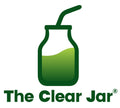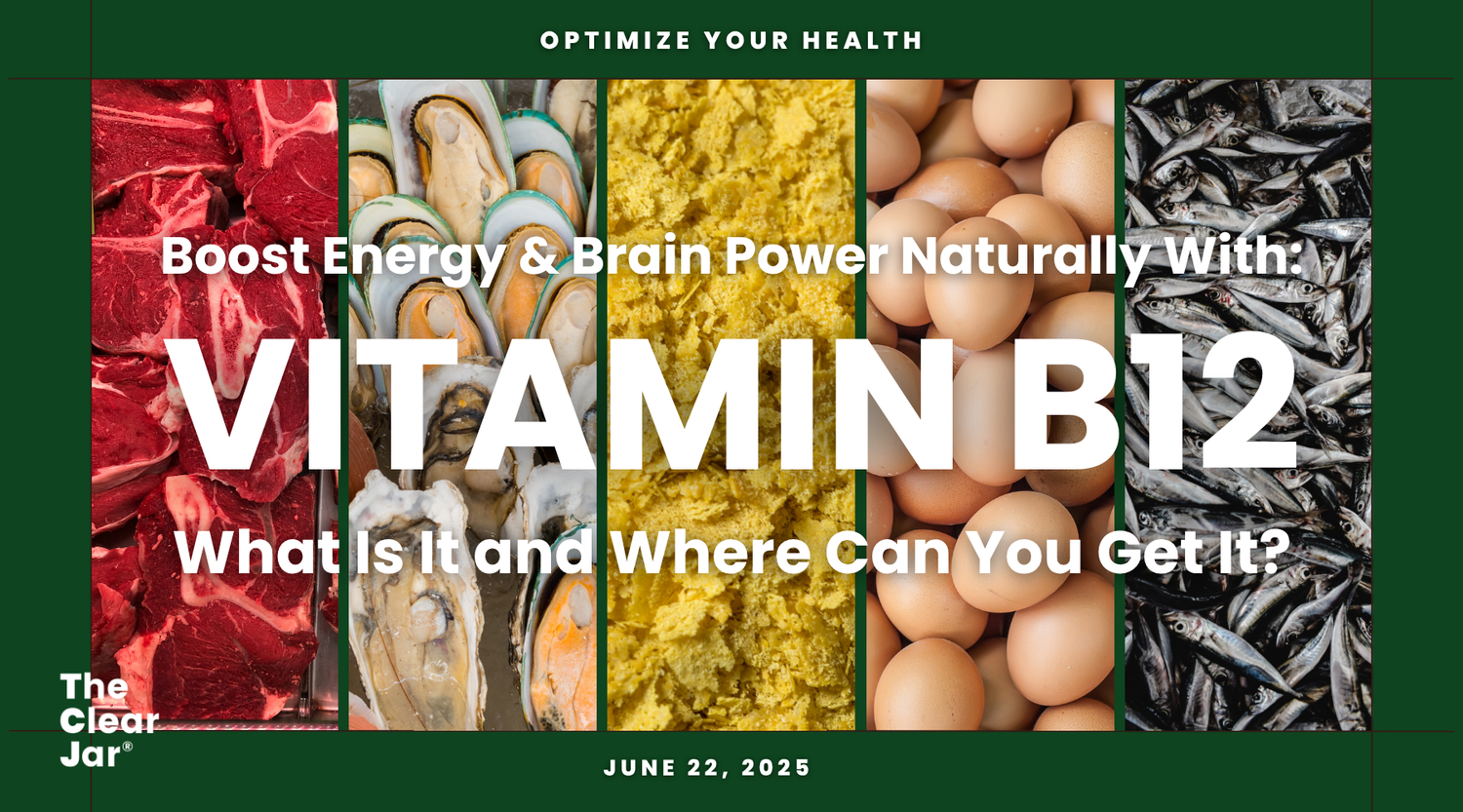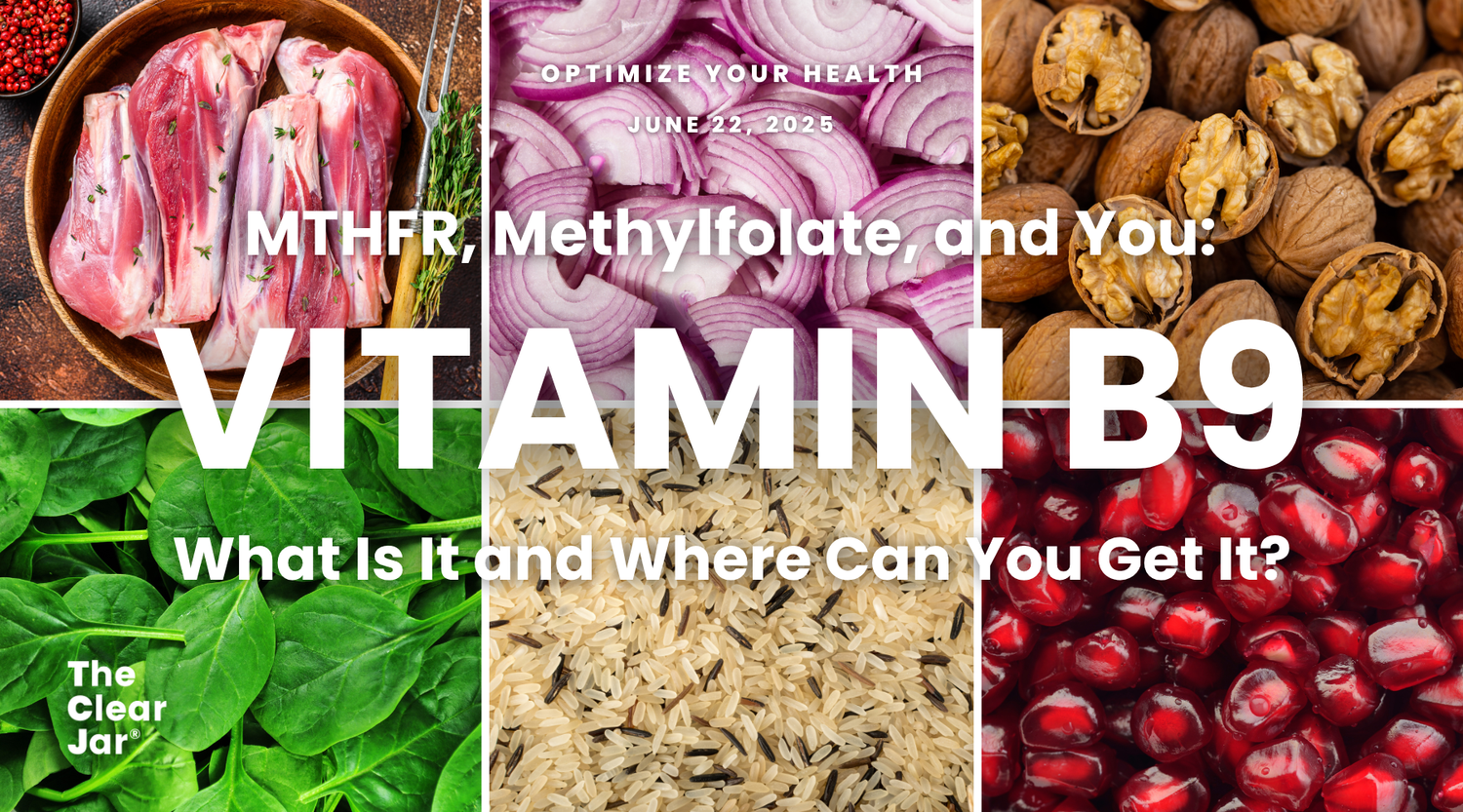Vitamin B2, also known as riboflavin, is an essential water-soluble vitamin, that’s also a crucial member of the B-complex. It’s critical for energy production, nerve function, and general health. Here, we explore the importance of vitamin B2 and the best ways to ensure you’re getting optimum amounts.
Content Outline
- What is Vitamin B2?
- What is the function of Vitamin B2 in the human body?
- Vitamin B2 forms: Which is the active form?
- Vitamin B2-rich foods
- Vitamin B2 recipe: Riboflavin-rich smoothie
- Vitamin B2 supplements
- Why buy food-borne vitamins?
What is Vitamin B2?
Vitamin B2, also known as riboflavin, is an essential water-soluble vitamin that plays a crucial role in maintaining overall health, including growth and development and energy production1. It is part of the B-vitamin family, also referred to as the B-vitamin complex.
Unlike fat-soluble vitamins, the body does not store large amounts of riboflavin, making daily intake via your diet essential. Most people will get all the vitamin B2 they need in their diet, but it is possible to become deficient, especially if you do not consume certain foods.
What is the function of Vitamin B2 in the human body?
Vitamin B2 is a part of the wider B vitamin complex – essential for catabolic and anabolic metabolism. They are all water-soluble vitamins and so must be replenished every day within your diet or via supplementation.
B vitamins act as coenzymes in several enzymatic reactions and processes that support every aspect of health, including within your brain and nervous system2.
Vitamin B2 is specifically involved in:
- Energy production: Vitamin B2 has a crucial role in energy production by acting as a coenzyme in metabolic pathways that convert food into energy, especially carbohydrates, fats, and proteins3.
- Antioxidant activity: Vitamin B2 acts as an antioxidant, neutralizing free radicals4 and protecting the body against oxidative stress5. It does so by acting as a coenzyme for glutathione reductase, converting glutathione into its reduced form which is a potent antioxidant6.
- Cell growth and function: Riboflavin is important for the growth and repair of your cells. It’s also involved in red blood cell production and in transporting oxygen around the body. By increasing your riboflavin levels, you can improve the amount of haemoglobin in your blood and increase red cell production7.
- Nervous system support: Riboflavin is an important factor in the synthesis of myelin, the insulating substance surrounding your nerve cells, and facilitates transmission of electrical signals8. Interestingly, various studies have shown that a high daily dose of vitamin B2 (400 mg/day) for 3 months had a significantly positive effect on the duration, frequency, and severity of migraines9.
- Vitamin metabolism: As well as helping to metabolise macronutrients, vitamin B2 also has a crucial role in metabolising other vitamins including B6, niacin, and folate, converting them to their active forms for various metabolic processes10.
Vitamin B2 forms: Which is the active form?
There are two biologically active forms of vitamin B2. They are:
1. Flavin mononucleotide (FMN) – also known as riboflavin-5’-phosphate, FMN is critical for the proper functioning of the electron transport chain which is important for energy production in cells.
2. Flavin adenine dinucleotide (FAD) – another vital co-enzyme derived from vitamin B2 that’s important for several processes.

Figure 1. Conversion of riboflavin to flavin mononucleotide by riboflavin kinase and flavin adenine dinucleotide by FAD synthase11.
Both types of active vitamin B2 are coenzymes in various metabolic reactions. When you eat riboflavin from food or supplements, your body converts it into active forms to support essential biochemical pathways.
Vitamin B2-rich foods
Vitamin B2 is widely found in a range of animal and plant-based food sources. Here are some of the richest examples12:
|
Animal sources |
Plant-based sources |
|
|
Vitamin B2 recipe: Riboflavin-rich smoothie
This simple, nutrient-packed smoothie is an easy and convenient way to boost your vitamin B2 intake.
Ingredients:
- 30g spinach
- 1 medium banana
- 120g Greek yogurt
- 120ml almond milk
- 15g almond butter
- 5g flaxseeds
- Ice cubes
Methods:
- Add all ingredients to a blender or a large bowl if you are using a stick blender.
- Blend the ingredients until smooth.
- Enjoy alongside breakfast or as a post-workout snack.
Vitamin B2 supplements
Most people should be able to get all the vitamin B2 they need from their diet, but supplementation can help keep your levels within an optimal range.
Some of the groups who might benefit most from vitamin B2 supplementation include:
- Vegans and vegetarians: People who follow certain diets, like Vegans or vegetarians, or restrict certain foods may be at a greater risk of deficiency because they may be missing out on riboflavin-rich foods like dairy and meat.
- Pregnant and breastfeeding women: Vitamin B2 is important for the health of pregnant mothers and their developing fetus13. Some research has shown that high doses of vitamin B2 have prevented severe cases of preeclampsia14.
- Individuals who experience migraines: Research suggests that high doses of vitamin B2 (400 mg per day) can reduce migraine frequency and severity15.
- People with absorption disorders: Malabsorption syndromes such as Crohn’s disease and celiac disease can impair nutrient absorption in the small intestine, resulting in deficiency. Riboflavin deficiency can have a knock-on effect because it can alter iron absorption and cause anaemia16.
- Older adults: Older, elderly adults are at a greater risk of deficiency because of increased requirements, decreased absorption, and poor diet, and may benefit from vitamin B2 supplementation. One study found up to 10% of participants were deficient in vitamins B2 and B1, B12, and folate17.
- Alcoholics: Chronic alcoholism is linked to a high prevalence of vitamin B2 deficiency18 because alcohol impairs the body’s natural ability to absorb and use nutrients19.
Several types of vitamin B2 supplements are available, such as:
- Riboflavin (free form) – the most standard form of vitamin B2 and is found in most supplements.
- Riboflavin-5’-phosphate – also known as flavin mononucleotide is a more bioavailable form of vitamin B2 supplement.
- B-complex supplements: vitamin B2 is often combined with other B vitamins to support metabolism, energy production, and nervous system function.
The vitamin B2 found in supplements is often produced on an industrial scale through fermentation using microorganisms like fungi and bacteria, rather than being taken directly from natural food sources.
Some of the specific organisms used are:
|
Fungi |
Ashbya gossypii Candida famata Candida flaveri |
|
Bacteria |
Corynebacterium ammoniagenes Bacillus subtilis |
Which type of Vitamin B2 supplement is best?
The best sources of vitamin B2 are natural foods. However, if you need to supplement your intake, the best type will depend on your individual needs. For example, if you want to support your general health, a standard riboflavin supplement or combination B-complex will be sufficient.
If you have absorption issues, you might want to consider supplements that contain riboflavin-5’-phosphate because it is the active, bioavailable coenzyme form, so your body will be able to use it more efficiently.
If you suffer from migraines and are interested in trying high-dose riboflavin supplements, talk to your physician first.
Why buy food-borne vitamins?
Vitamin B2 or riboflavin is essential for energy production, cell function, and general health and wellbeing. While a balanced diet will provide you with an adequate supply of vitamin B2, supplements can help bridge nutritional or lifestyle gaps where needed.
When choosing a supplement, choose a high-quality, bioavailable, or food-derived form with minimal additives for better absorption, such as those from The Clear Jar which provide several advantages, including:
- improved bioavailability, absorption, and synergy
- reduced risk of toxicity
- 100% food-based
- no added fillers
- cost-effective
Check out our shop to explore the range.
Written by: Leanne Edermaniger MSc







